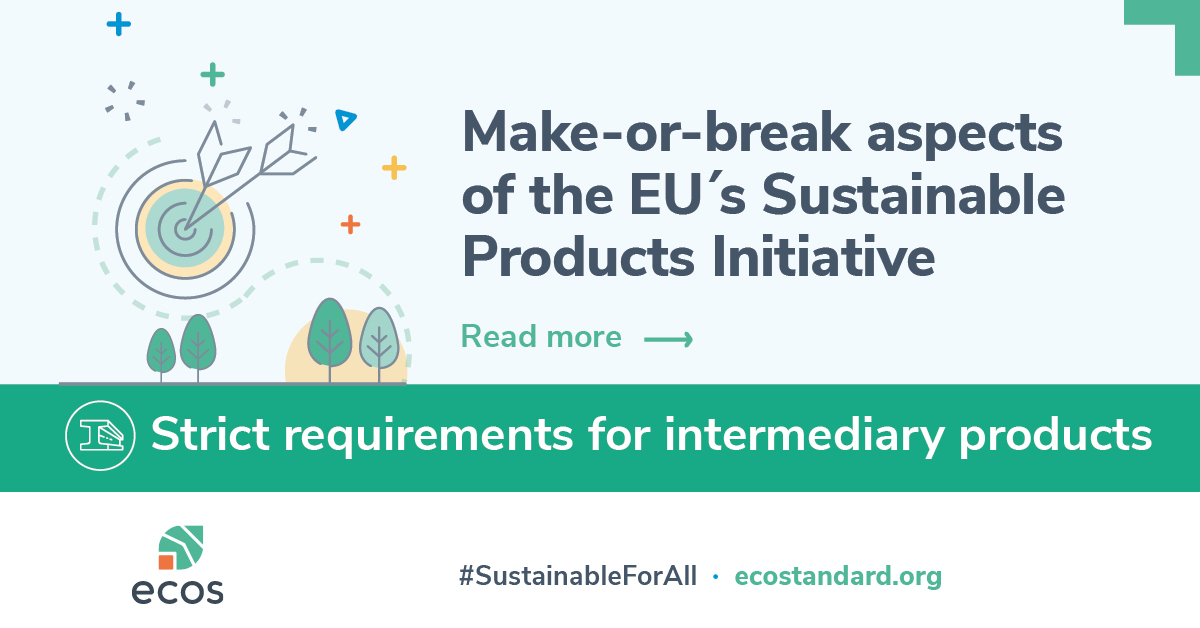Make-or-break aspects of the EU´s Sustainable Products Initiative, Strict Requirements for Intermediary Products
Based on the success of the Ecodesign Directive, and in view of the failures of industrial policies to date, the SPI for intermediaries is a unique opportunity to ensure we kickstart a deep industrial transformation and accelerate progress towards climate neutrality.

Intermediary products are unfinished goods made from materials such as steel, cement and chemicals that require further manufacturing or transformation. They are produced by energy intensive industries and used in almost all sectors, including construction and automotive. Beyond substantial CO2 emissions, intermediary product manufacturing has a range of other harmful embodied environmental impacts such as water, land and air pollution, as well as an unsustainable use of natural resources.
The SPI will be successful if…
The SPI proposal must require manufacturers to improve the environmental sustainability of their intermediary products. Policymakers should:
- Adopt a full lifecycle assessment approach when setting product requirements. The methodology used to develop requirements for intermediary products should be aligned with industrial decarbonisation pathways, and combined with an evaluation of the long-term viability of industry investments in sustainability.
- Introduce minimum requirements to exclude the worst-performing intermediary products (looking at CO2 footprint and core Product Environmental Footprint impact indicators) and social sustainability (for example, with indicators on the impacts of pollution on local communities).
- Introduce minimum functional performance requirements concerning inherent intermediary product characteristics that end-products rely on for intended applications (for example, determine steel strength for use in construction), driving market innovation and resource efficiency.
- Develop requirements that oblige manufacturers to leverage strategies for improved sustainability of their intermediary products and the value chain as a whole. Requirements should incentivise producers to use clean energy, adopt new technologies, and optimise design to reduce material footprint and improve functional performance.
- Establish restrictions on the presence of substances detrimental to environmental sustainability because they present barriers to reuse or recycling (for example, heavy metals in cement, and additives in basic chemicals) or because they negatively impact circularity parameters, such as durability.
- Introduce mandatory information requirements to be included in digital product passports. They should include the entire material history:
from raw material extraction to production route to options for reuse, refurbishment or recycling at end of life. - Support on-demand production as well as circular business models deploying reverse logistics for reuse, remanufacturing and recycling of materials.
The SPI will be too weak if…
The SPI must become the environmental checkpoint to decouple resource use from a thriving economy when it comes to sectors such as steel, cement and chemicals. The proposal will lack ambition if it does not make up for the shortcomings of industrial policy, which has so far failed to drive the decarbonisation of energy intensive industries.
Did you know that…?

A strong SPI is a once-in-a-decade opportunity to make sustainable products the norm!

 By
By 
